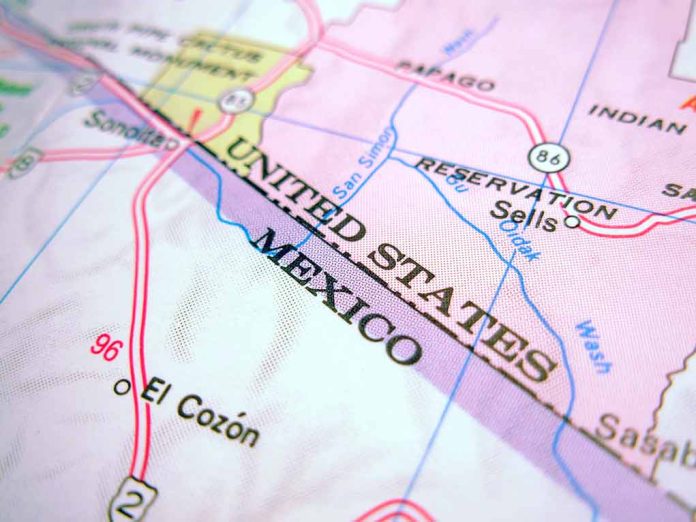
Shifts in U.S. immigration policy are stirring uncertainty for migrants and impacting stability in regional countries.
At a Glance
- Mexico strengthens border control as U.S. immigration policies change.
- Central American countries brace for potential mass deportations under Trump.
- Collaboration between U.S. and Mexico is key for deportation logistics.
- Economic and humanitarian concerns arise from potential mass deportations.
Border and Immigration Policy Changes Impact Mexico and the U.S.
U.S. immigration policies are undergoing notable changes, affecting the dynamics at the Mexico-U.S. border. Mexico, working in tandem with the U.S., is enhancing border security to curb unauthorized entries. Meanwhile, the Biden administration’s measures have led to fewer crossings, demonstrating the immediate impact of policy changes. Despite these modifications, the area remains sensitive, especially with the anticipated return of robust deportation strategies linked to President-elect Donald Trump’s agenda. Key figures like Stephen Miller emphasize a large-scale deportation effort.
Mexico is stepping in to bolster its defenses by deploying National Guard units and halting humanitarian card distribution, safeguarding vulnerable populations amidst these shifts. Mexican border states are initiating shelter preparations and strengthening collaboration with local organizations, reflecting the region’s proactive stance. Cooperation with the U.S. is vital, as Mexico agrees to receive non-Mexican deportees, marking an essential component for the logistics of Trump’s proposed mass deportations.
Central America: Preparing for Impacts of Mass Deportations
Regarding mass deportations, Central American countries such as Honduras, Guatemala, and El Salvador anticipate increased challenges. They face the daunting task of managing economic and humanitarian crises exacerbated by potential influxes. Over 560,000 Hondurans residing in the U.S. without legal status are particularly vulnerable, with about 150,000 at imminent risk of deportation. Such numbers spotlight the strain on local resources and the extensive demand for reintegration support.
Aid networks are already struggling, indicating a pivotal humanitarian crisis that looms large. The stakes for Central American economies are substantial; remittances sent from the U.S. represent crucial economic sustenance. The persistence of poverty and violence continues to drive migration, underscoring the complexities these nations confront, which extend beyond mere deportation logistics to encompass deep-rooted systemic issues.
Diplomatic and Logistical Nuances of Mass Deportation Plans
President-elect Trump’s planned mass deportation policy hinges on diplomatic coordination and support from Mexico. This cooperation is indispensable for executing logistics and ensuring border security aligns with the intended policy. The success of this partnership is paramount to the cycles of deportation and immigrant management envisioned by Trump’s officials. ”The question is not whether mass deportation will happen; it’s how big Mr. Trump and his administration will go and how quickly,” said Dara Lind, senior fellow at the American Immigration Council.
However, the practical implications require robust collaborative frameworks and an understanding of each nation’s capacities and resources. Central American nations, alongside Mexico, continue to prepare strategically for how these plans might unfold and influence their societal domains. Proactive planning aims to cushion these anticipated shifts, striving for stability amidst the prevailing geopolitical landscape and spotlighting the humanitarian concerns central to this evolving narrative.
Sources:
- https://apnews.com/article/honduras-trump-mass-deportations-central-america-immigration-c28e71c590a9f3df2d607df13b956656
- https://nymag.com/intelligencer/article/trump-mass-deportation-immigration-mexico.html
- https://apnews.com/article/mexico-us-migrants-trump-deportations-c18d850aa67e39e826a2050eaf7c440a
- https://dnyuz.com/2025/01/07/trump-vowed-mass-deportations-mexico-and-central-america-brace-for-impact/



